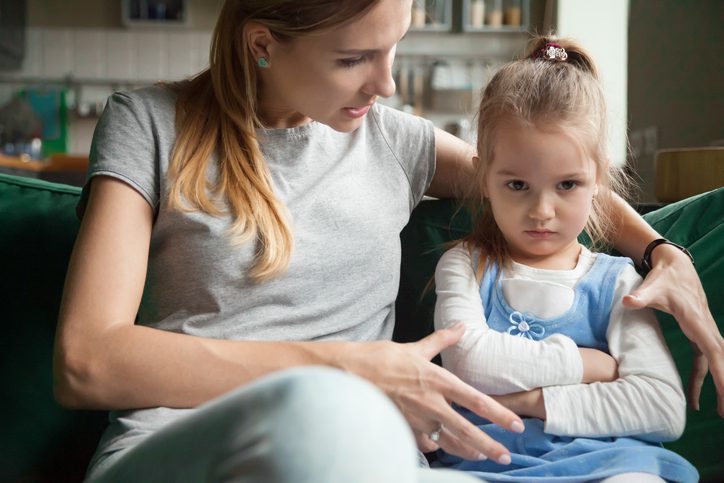This article originally appeared in Macaroni Kid on September 26th, 2019 by Luanne Starr Rhoades, LCPC, LADC, CCS; Health Affiliates Maine
Question: My son is 7 years-old and his teacher recently suggested that he may have ADHD. He is very active and sometimes distracted. I’m very hesitant to ask his doctor about it though because I do not feel like we need to put him on medication, at least not at such a young age. I’d like to explore some ways to help him with focus and calm his body over the summer to see if it helps before the start of school. Please share any suggestions you may have.
Answer: Although this response isn’t fitting with your timeframe, I hope it can still be helpful throughout the year. Many parents feel like you, and are concerned about their children taking medication at such a young age. Some question whether medication would change their child’s personality when perhaps they could eventually grow out of their unfocused nature. They worry about side effects. There are things you can do at home, and some other options to consider. Let’s start by understanding this condition and what contributes to ADHD (Attention Deficit Hyperactivity Disorder).
What is ADHD? In order to be diagnosed with ADHD a child must have at least six ADHD symptoms of either: inattention, hyperactivity-impulsivity; one or the other, or both. These symptoms must be present for at least 6 months or longer, be present before the age of twelve and cause significant difficulties or impairment in two or more settings, such as home, school/work or social settings. Adults can also have symptoms and be diagnosed with ADHD.
Some symptoms of inattention include:
- having difficulty maintaining attention,
- having difficulties listening or following instructions,
- making careless mistakes,
- avoiding tasks that require a sustained focus,
- being forgetful,
- getting distracted easily and
- losing things easily.
The symptoms of hyperactivity-impulsivity include:
- having difficulty engaging in quiet activities
- restlessness (needing to move around, fidgety, etc.)
- excessively talking or blurting out answers
- interrupting others
- having difficulty with waiting their turn
https://www.mayoclinic.org/diseases-conditions/adhd/symptoms-causes/syc-20350889
Is it really ADHD? Many disorders can mimic ADHD, including just about every anxiety disorder and some physical conditions. A thorough medical work-up and talking with your PCP about exploring other health issues that can affect your child’s ability to concentrate will be essential for your child. Sometimes children will become temporarily hyperactive or distracted in the setting of a family stressor like death of a loved one, divorce, or traumatic event.
Parenting is key and your style of parenting may need to be modified to help your child. Chaotic and hectic households (many of us have them) can contribute to how a child’s brain develops. Just as you would make changes for any child who has special needs, changes in your approach, schedule, your home, and your parenting skills may make a significant difference. The best way to address behaviors in a child (ADHD or otherwise) is to provide an environment that is scheduled and consistent. Seeking counseling can help you learn parenting skills that help you manage a distracted child, while being a loving parent who is consistent and firm.
Limiting screen time: I realize that this seems impossible in our current culture. However, it is so important in developing children. A child with attention and hyperactivity issues can wear on a parent. As a result, they may choose to allow screen time to distract them for some relief. However, this is not a solution; it actually contributes to the problem. Limit screens to no more than 20 minutes twice a day (at the most) with the parent controlling all access to screens including TV.
A new study out of the University of Alberta has found that by the age of 5, children who spent two hours or more looking at a screen each day were 7.7 times more likely to meet the criteria for a diagnosis of Attention Deficit Hyperactivity Disorder (ADHD) when compared to children who spent 30 minutes or less. https://www.ualberta.ca/medicine/news/2019/april/too-much-screen-time-associated-with-behavioural-problems-in-preschoolers
That means take the screens out of the bedroom, the car, and the kitchen. Parents/caregivers should take charge of dispensing the screens and locking them up when not in use. Do this consistently and get all caregivers on board. There are benefits for everyone when screens are limited. Here is a helpful link: https://abcnews.go.com/Health/screen-time-linked-higher-risk-adhd-preschool-aged/story?id=62429157
Time Outside: Make time for high energy play: outside. I remember when my mother would have enough of me and my brothers pestering her, and we would get sent outside to play. I would always fight it, claiming it was “too cold”, “too hot”, “there was nothing to do”, and “no one to play with”. In the end, she would have to call and call for us to come in for supper. Physical outside play and exercise is recommended for all children (actually for adults, too) and can be very helpful for the symptoms of ADHD. If you want your children to do something that helps their wellbeing, then take a strong parenting role and make it happen. You can let them sit outside pouting until they grow tired of doing that. This will communicate that you are in charge, and crying and complaining doesn’t change that fact. You can adopt this ‘in charge’ stance in other areas. When children know that a parent is in control, they feel safe.
Check out this link: https://www.health.harvard.edu/blog/6-reasons-children-need-to-play-outside-2018052213880
Regular Bedtime with the recommended number of hours of sleep for your child’s age is also critical. The American Academy of Pediatrics recommend children 3 to 5 years of age should sleep 10 to 13 hours per 24 hours (including naps) on a regular basis to promote optimal health. Children 6 to 12 years of age should sleep 9 to 12 hours per 24 hours on a regular basis to promote optimal health. Consistent bedtime can help in many ways with children’s behavior and health. Set a consistent bedtime for your child and stick to it. This is another time when the parent must be in charge, and not let the child dictate the bedtime. Whatever time you set, your child will adjust to it, if you are consistent.
ADHD is serious. One caution is that you not wait too long after you have tried other alternatives. People who grow up with untreated ADHD often have low self-esteem. They think of themselves as “stupid”. Throughout their lives they get messages from teachers, schoolmates, and family, when they are unable to settle, focus, or complete a task, that they are deficient and defective. There are lifelong impacts to low self-esteem which can be serious.
If your child continues to struggle with concentration, hyperactivity or both, his or her learning and overall functioning in the world is at risk, and may be enhanced on medication. Please consider that medications aren’t evil, they are a tool and similar to a child with nearsightedness who can read if they really concentrate and squint their eyes, we don’t withhold glasses from them because we think they will grow out of it or do better if they just try harder, we give them glasses and are quite proud that they now enjoy reading instead of avoid it.
Here are some alternative ways ADHD symptoms are treated.
- Counseling to learn skills to focus their minds and modify behaviors. This can be essential for parents. Counseling also helps with self-esteem problems.
- Acupuncture, Yoga and Tai Chi: Rooted in Eastern medicine, current studies show that this can be helpful.
- Chiropractic: Call and ask about treating ADHD.
- Nutritional counseling: There is some evidence that a low carb/sugar, high fat diet is helpful.
I wish you well as you explore what is best for your child.
Luanne Starr Rhoades, LCPC, LADC, CCS is a professional counselor and the Outpatient Therapy Director at Health Affiliates Maine, a mental health and substance abuse treatment agency serving adults, adolescents, children and families. For more information or if you or someone you know needs help, call us at 877-888-4304 or visit our website healthaffiliatesmaine.com and click on “Referrals.”




